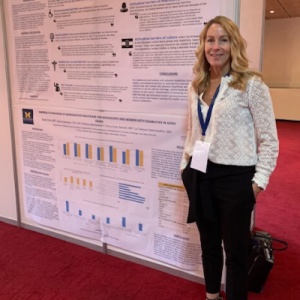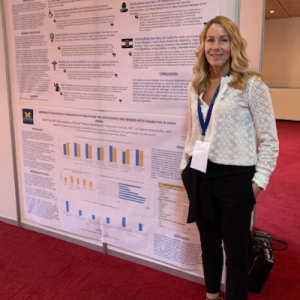Evaluating Reproductive Healthcare Services for Adolescents and Women with Physical Disabilities in Ethiopia


Over 15 million persons with disabilities live in Ethiopia, nearly one-fifth of the population. Unfortunately, women and adolescents with disabilities experience significant marginalization and isolation and their reproductive health needs are virtually unmet.
In 2016, IRWG awarded Dr. Susan Ernst (Obstetrics & Gynecology, Medical School) a Faculty Seed Grant to gather preliminary evidence for developing a reproductive health care program to meet the special needs of Ethiopian adolescents and women with disabilities. The project utilized a mixed-methods design, using qualitative methods to capture in-depth information from adolescents and women with disabilities, and quantitative methods to capture specific information from administrators and health care providers.
Dr. Ernst reported back with a summary of the project’s progress and findings:
We received IRB approval in January 2017 from the Ethiopian Public Health Institute (EPHI) necessary for beginning our surveys at St. Paul Hospital Millennium Medical Center (SPHMMC) and focus groups at Ethiopian Center for Disability and Development (ECDD). We collaborated with our Ethiopian colleagues from SPHMMC to administer surveys for the faculty, residents, nurses and administrators at SPHMMC to determine current barriers to providing care for their patients with disabilities.
Our data suggests that clinicians and nurses feel moderately comfortable and prepared caring for women with disabilities. They are more comfortable caring for general reproductive health needs such as a general exam, contraception, prenatal care and family planning though there is a wide range of comfort expressed between respondents. They identified physical barriers, attitudinal barriers, and societal barriers for women with disabilities accessing reproductive healthcare. They expressed an interest in educational training regarding disability for clinical staff and the community. They also supported updates to the facility and medical equipment to improve accessibility and care for this special population.
In addition, we held focus groups led by the Ethiopian Center for Disability and Development (ECDD) to facilitate discussion among adolescents and women with disabilities from Addis Ababa to determine the barriers they face in accessing reproductive health services. The adolescents and women with disabilities outlined multiple barriers to accessing reproductive health services including negative clinician and societal attitude towards persons with disabilities, physical barriers in healthcare facilities, scarcity of healthcare resources in Ethiopia, and lack of family support regarding sexuality and reproduction. The adolescents and women with disabilities from Ethiopia expressed an interest in having a caring lifetime partner and having children; they wanted us to know that they want the same things in life as women without disability.
In April 2019, Dr. Susan Ernst went to the Center for International Reproductive Healthcare Training conference in Addis Ababa, Ethiopia to present two posters on both the surveys of healthcare providers and the focus group summaries (pictured at top). She was able to teach family planning skills to participants including contraceptive implant and IUD insertion.

photos L-R: the medical campus at St. Paul hospital; St. Paul Hospital and Ethiopian Center for Disability and Development with research team at Michu Clinic (2016)
